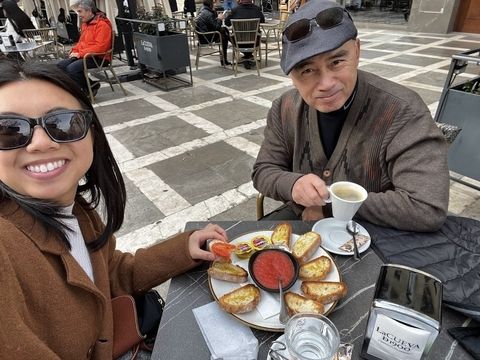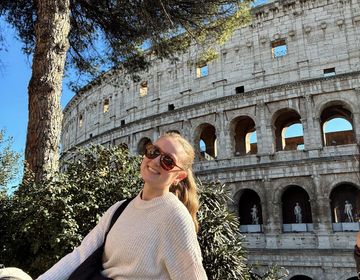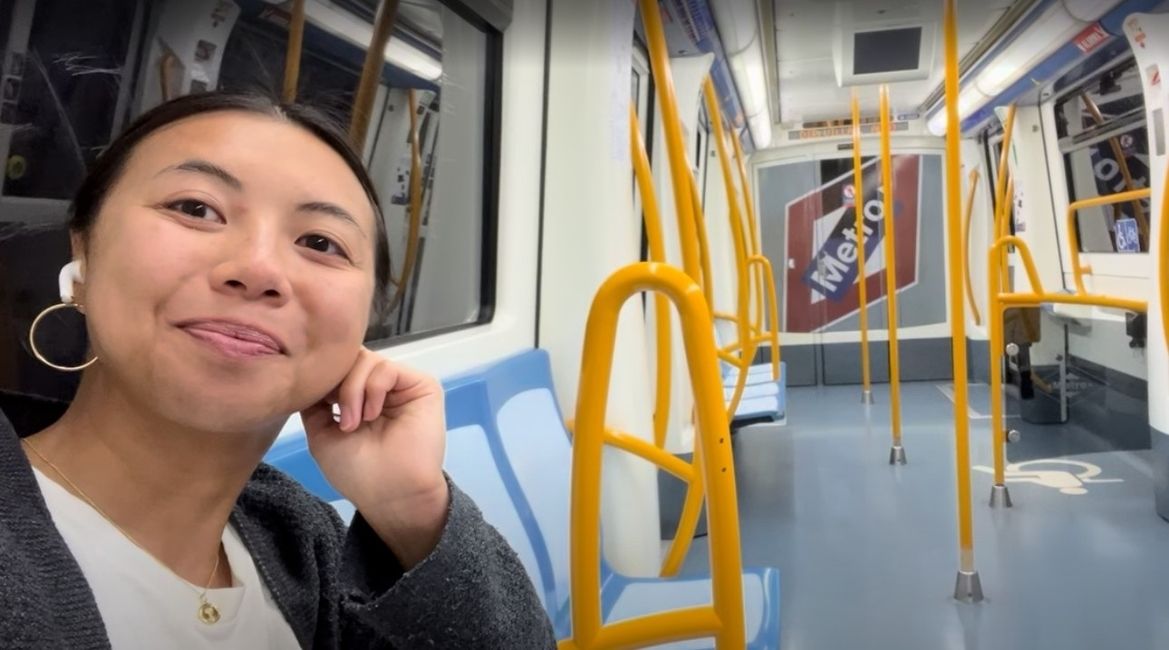Spend Your Euro Wisely: A Guide to Managing Your Money In Madrid
The Truth About Cost of Living in Madrid
One of the benefits of the Teach in Spain Program is that you are given a stipend at the end of each month. In the Community of Madrid, this is 1,000€ which is generally enough for daily living.
But I’m not gonna lie… this city is expensive.
To help you feel financially confident when you make the move abroad, I’ve outlined the average cost of living and why I strongly recommend you come with additional savings from home.
Keep in mind every case is different. The examples below are based on my personal experience as well as other teaching assistants I’ve spoken to.
Here’s a Breakdown of Average Monthly Essentials
These are the necessities you absolutely need to account for:
- 500-600€ Rent in a shared space
- 30-60€ Utilities (electricity and water, dependent on season)
- 20-30€ WiFi
- 150-200€ Groceries
- 8-22€ Abono card (transportation, dependent on age)
- 15€ SIM card (cell)
This totals about 723-927€ for monthly expenses, leaving anywhere from 73-277€ for savings and/or treating yourself. See bullets below for examples.
Here’s a Breakdown of Average Monthly Luxuries
These are the extra costs I spent my income on; things that I don’t necessarily need to survive, but that were important for me to account for:
- 25-30€ Gym
- 150-300€ Weekend travel
- 5-15€ Per meal when eating out
- 5-20€ Shopping (Note: I often thrifted so this isn’t representative of shopping at retail value)

The Financial Challenges I’ve Faced
As much as I had planned, there were still some bumps in the road when I first arrived:
- The stipend is paid at the end of the month. When I arrived in September, I knew I wouldn’t be paid until October 31. I made sure to bring enough money to last in the meantime. Throughout my time in Spain, I also had to be mindful with my spending knowing my account was only replenished every four weeks.
- Most apartments expect 3 months’ worth upfront. It’s very common to sign with an agency who owns the apartment. In this case, they typically expect payment for the first three months. Fortunately in my personal situation, my apartment was privately owned and I worked with the landlord to pay monthly and without a deposit.
- Be prepared to live in a hotel when you first arrive. The housing market is COM-PE-TI-TIVE. Because so many people are looking for homes especially in the late summer/early fall, it may take a while to land a place. You may have to live somewhere temporarily like a hostel, hotel, AirBNB, or other stay. I personally spent $450 between AirBNBs and staying on a friend’s couch for my first month in Madrid.
Tricks to Preparing and Saving Your Finances
Here are a couple things that helped me spend my money wisely:
- Don’t take housing prices for face-value. Apartment listings in Madrid may reflect a certain price, but they may be flexible. Try negotiating numbers with the landlord (which I did successfully). The worst they can do is say no.
- Consider living outside the city center. Rent is significantly cheaper the farther you get away from Sol, the city center. Even so, the metro (subway) system is fast, cheap, and reliable that even neighborhoods 30+ minutes outside of Sol feel incredibly close.
- Balance wants vs needs. It may take a hard conversation with yourself, but be honest about what expenses are absolutely necessary and what you can live without. I know it can be hard, but your wallet will thank you!
General Rule of Thumb
Madrid is an expensive city to live in. However, it can be affordable if you manage your finances wisely.
In any case, I strongly encourage coming with funds saved up beforehand. It never hurts to have more money than you need. You can keep it in its original currency and convert to euros as you need, or you can convert it all at once so it’s readily available.
In general, I always stress the importance of having at least three months’ worth of living saved up. This will come in handy in case of emergency and for peace of mind. You can calculate a reasonable amount based on your personal lifestyle by calculating the following monthly expenses then multiplying by three:
- Rent
- Essentials (utilities, WiFi)
- Groceries
- Transportation
- Savings (include something here so you are intentionally putting money away)
As someone who worked for a financial institution for nearly eight years, I feel especially passionate about budgeting. The biggest importance in managing personal finance is to have confidence in your spending, so I hope this guidance was helpful as you prepare your move abroad!
If you need help getting started with budgeting, have questions, or would like to connect, I’d love to hear! Find me on Instagram @travelwithmiv.
Related Posts

How to Plan a Weekend in Rome
After my weekend trip to Rome, I have compiled my tips for must-see sites, what to skip, where to shop, and what to eat!
Managing Mental Health While Teaching Abroad
Our expectations of Teaching Abroad can be far off from our reality, having an effect on our mental health, and that’s okay. Here are a few things I have found to be helpful in (gently) taking back control and creating a smoother transition into my new life as an English Teacher abroad in Spain.


